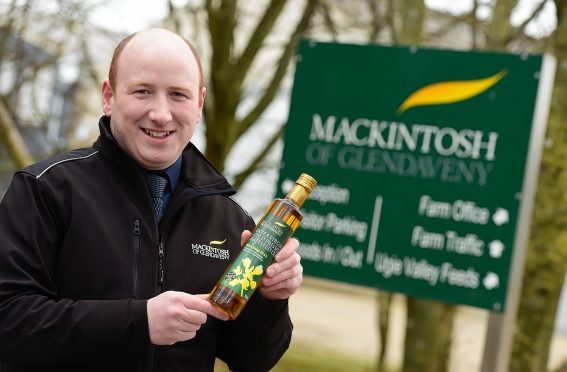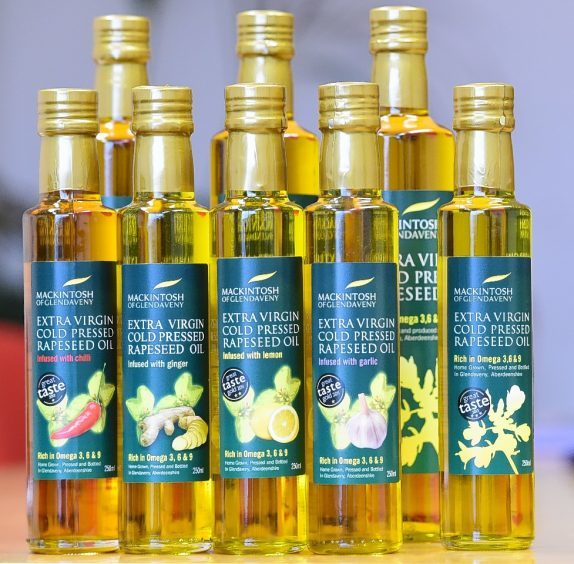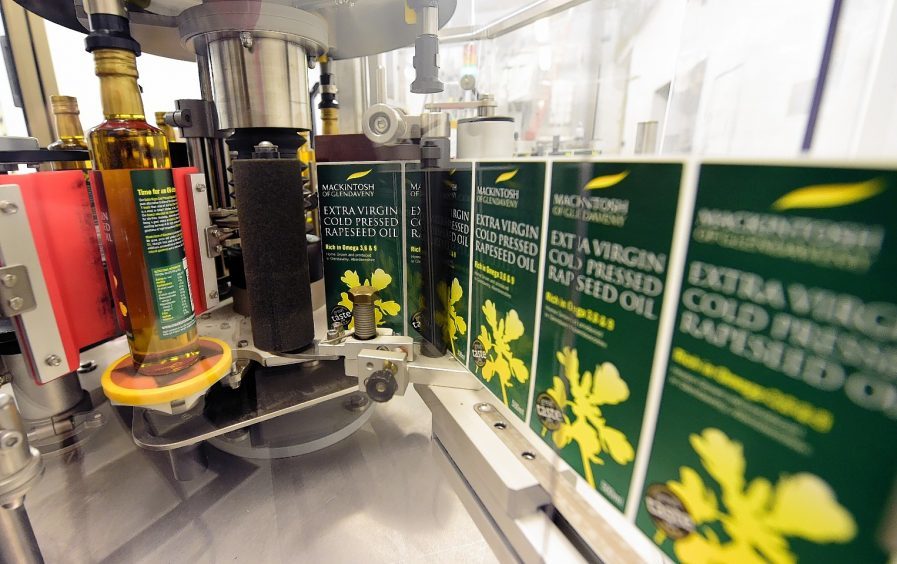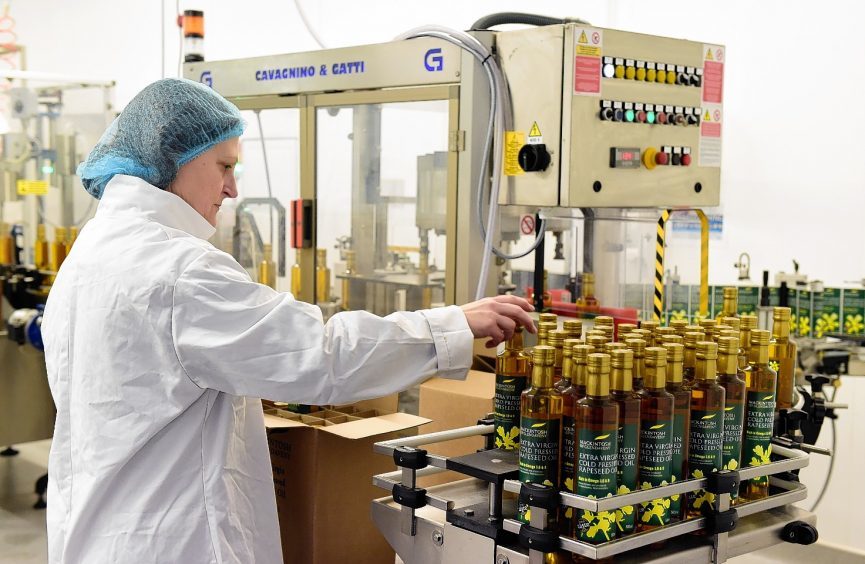Gregor Mackintosh is on a mission to have his cold pressed rapeseed oil stocked in every supermarket across the UK.
The third-generation farmer launched the Mackintosh of Glendaveny business in March 2009 at the age of 21.
The concept was the focus of his dissertation while studying agriculture at SRUC’s Craibstone campus in Aberdeen.
“The outcome of the study was very positive,” said Mr Mackintosh.
“I spoke to processors, supermarkets and independent retailers. The feedback was that the product was very unknown but there was no reason not to see demand for it.”
The business was initially helped with a £30,000 grant from the Prince’s Scottish Youth Business Trust, and since then Mr Mackintosh has re-invested more than £500,000 in the business.
It employs three full-time members of staff, including Mr Mackintosh and his girlfriend Katy Amos, and three part-time members of staff.
The range comprises extra virgin cold pressed rapeseed oil and a range of infused oils in four flavours – garlic, lemon, jalapeno chilli and ginger.
The business is currently enjoying a period of rapid growth, landing listings in 60 Scottish Co-op stores and 40 Tesco stores in the last quarter of 2016.
This means the company’s range of oil, which is produced from the family farm at Mains of Buthlaw, near Peterhead, is now stocked in all Scottish Asda and Tesco stores, a number of Co-op supermarkets and some Sainsbury’s outlets.
It is currently only available in independent retail outlets south of the border, however Mr Mackintosh has national supermarket listings in his sights.
He said achieving special British Retail Consortium accreditation would be instrumental in meeting this objective.
The bulk of oil – 70% – is sold in the retail market, while 30% is sold into the food service sector, including export sales to the Middle East. In fact more oil is sold into the export food service sector than the domestic one.
Mr Mackintosh said: “We followed the route of Scottish smoked salmon. The oil is mainly used as a high-end dressing oil. The way currency has worked out we are now more competitive than olive oil and in the past two years we have focused on export in the region.”
The company also sells a small proportion – around 10% – of its oil into the fish processing sector, predominantly for use in supermarket-own brand products.
Mr Mackintosh said the business was on track to start work on a £1million expansion plan, with the aim of completing all works before harvest 2018.
This has been made possible due to support from the Scottish Government’s Food Processing, Marketing and Co-operation (FPMC) grant scheme, which forms part of the Scottish Rural Development Programme.
In the past year the company’s market share in Scotland has more than doubled to 58% of the Scottish rapeseed oil market – this is up from 11% in 2011.
“Market growth has given us the confidence to invest further in the business,” said Mr Mackintosh.
“In the past few years we have really been focusing on efficiency and managing the quality of the product as we expand.”
The £1million expansion will comprise a new drier plant for continuous intake, a new fully automated crusher and filtration plant and increased storage facilities.
“We will be able to process just over 4,000 tonnes of seed a day once the new infrastructure is in place,” said Mr Mackintosh.
The bulk of oilseed rape is produced on the family farm, which is run by Gregor’s father, Jim, and his brother, Fraser.
The oilseed business buys the seed from the farm and stores it for crushing all year round.
Mr Mackintosh was reluctant to reveal the varieties grown, but said the family was always trialling new varieties to find the best one for oil production.
He said rapeseed must be dried to no lower than 7.5% moisture as this is optimal for oil extraction.
The seed is stored at the factory and then cleaned and pressed for use each time.
It is then effectively double filtered – first to remove any sediment from the initial pressing process and then another time to purify it further. The only waste product from the process – rapemeal – is sold to local livestock farmers as feed.
Infusion is the next step in the line before bottling and packaging, again on-site.
So what makes rapeseed oil so special and why are more and more Scottish shoppers looking to buy it?
“Rapeseed oil has less than half the saturated of olive oil and 10 times more Omega 3,” said Mr Mackintosh.



